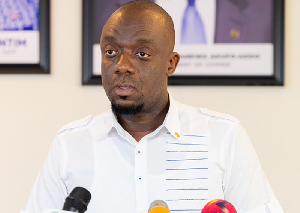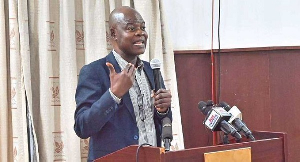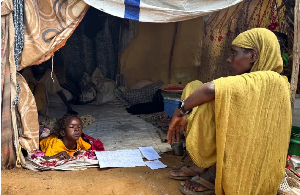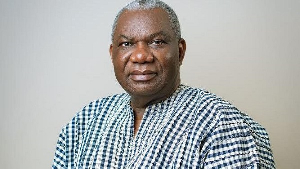By Justin Bayor
It is an almost accepted assertion that poverty is the cause of conflicts especially in Ghana, using northern Ghana as a case study. This has created the impression that ‘rich’ people do not fight in the minds of many people. However, Northern Ireland is usually cited as an example of ‘rich’ nation which was for many years in violence and even the USA is currently at war. In the same way, Malawi is said to be one of the poor nations which has never experienced any form of violent conflicts. Some scholars even say that the poor man is so poor he has no strength to fight. Therefore the question arises as to what actually makes some ‘rich’ people to use violence and some poor people not to? It is certainly not poverty.
Using Edward Azar’s theory of Protracted Social Conflict (PSC), we understand that the critical factor in PSCs is “the prolonged and often violent struggle by groups for such basic needs as security, recognition and acceptance, fair access to political institutions and economic participation”. The theory identifies deprivation as the underlying source of PSC. Grievances resulting from need and deprivation are usually expressed collectively and failure to redress these grievances provide the manure for PSC.
Grievances among people emerge as a result of the indignities that they experience in their everyday life whether rich or poor. But the idea of human dignity is not a recent phenomenon. It is as old as the history of humankind and exists in various forms in all cultures and religions. For example, the high value accorded to the human being can be seen in the South African philosophy of ‘ubuntu’ or the protection of foreigners in Islam. The ‘golden rule’ which states that one should treat others as one would like to treat oneself, exists in all major religions.
More recently, the International Bill of Human Rights has embodied one underlying conception of human dignity. The preambles to both the 1966 International Covenants on Human Rights states that Human Rights ‘derive from the inherent dignity of the human person’. Article 1 of the Universal Declaration of Human Rights says that ‘All human beings are born free and equal in dignity and rights. They… should act towards one another in a spirit of brotherhood’.
Dignity in the human person requires personal autonomy, societal concern, respect and treatment by others in society as an equal. If dignity is attributable to all human beings and if dignity requires autonomy which in turn is a right, then human dignity is essential to human rights.
However, poverty is said to be a hindrance to human dignity because it constitutes a denial of the fundamental human rights of an individual. The OHCHR has declared that ‘poverty is the principal cause of human rights violations in the world. It prevents people from assuming not only their duties as individuals, but also their collective duties as citizens, parents, workers and electors’.
Two important tenets underpin the statement by OHCHR and that is first, ‘respect for the inherent dignity of all members of the human family which is the foundation of …all human rights’ and secondly, a rights approach which supports the demand of people in poverty for their voices to be heard. Rights ‘are shaped through actual struggle informed by poor people’s own understandings of what they are entitled to’ and acknowledges and promotes the agency of people in poverty. This includes the everyday indignities that make poverty so difficult to bear.
Thus poverty should not just be understood according to its academic definition only. It should be understood in terms of what poor people themselves say. To the poor themselves, living in poverty means more than living without money, water, food, education, relatives, peace, social capital, democracy etc. In other words, living without human material and non material security involves a lot of more, which affects the dignity of the poor. For instance, the main concern of a group of homeless people in the US was the indignity of having to line up daily to receive a ration of five pieces of toilet paper. ‘That infuriated them, it took them beneath any level of dignity they might have’ and it was around that indignity, rather than the wider issue of their homelessness, that they were prepared to fight.
Narayan, Chambers et al profile the various dimensions of poverty as seen in the eyes of poor people themselves. They state that, apart from the material lack and want of food, livelihoods, assets, money, housing and shelter often described by the poor, the poor often described poverty as the everyday indignities that they have to go through which include pain, discomfort, exhaustion, discrimination, exclusion, rejection, isolation, loneliness, voicelessness, stigmatisation, vulnerability, disrespect, worry, fear, anxiety, low self-confidence and esteem, powerlessness, helplessness, frustration, anger, humiliation, shame etc. These are the issues that really concern the poor
The implication here is that to poor people, human indignity is more important than the situation of the poverty itself. In other words, poor people may put up with poverty but are less prepared to accept human indignity. Simply put, a poor man would rather have an empty stomach than face the indignity of having food served on the ground for him or live without employment rather than face humiliation from being spat on by an employer.
Consequently, it is around the issues of human indignity that people are prepared to utilise violence. The issues around the issues of human indignity vis-a-vis isolation, discrimination, rejection, powerlessness etc are what Edward Azar referred to as grievances. Poor people are more willing to fight for their grievances from poverty rather than for the issue of poverty itself. It is also important to note that grievances from indignity are not just confined to poverty only. It is both associated with poverty and without poverty and this explains why some people of some ‘rich’ nations are actually in violent altercation.
The indication to ‘human security experts’ is that in trying to prevent conflicts, one should not parochially prescribe a mere solution to the issues around poverty but should try to tackle the issues around grievances arising from the poverty as well. For instance, some ‘human security experts’ have concluded that the solution to the numerous conflicts in Ghana especially in the north is to provide and improve agriculture, education, health, water, employment etc. All these can be done and done very well but violent conflicts may still escalate all the more if nothing is done to address the grievances from poverty in the country. .
A hungry man is an angry man yet an angry man does not fight because he is hungry but because he is angry. The anger is a grievance from the hunger for which he is prepared to fight. However, not all hungry men become angry and this is because because their hunger is without a grievance whereas a rich man might become very angry because his wealth has come with a grievance for which he is prepared to use violence.
GHANAWARN
GHANEP operates an Early Warning and Response Centre that enables communities to report any early signs of human security threats. By this, we encourage the general public to report incidents of human security concern through the following options:
– Hotline phone number -0201131885
– Short code (for text messaging) -prefix GNP to 1414
* How to send SMS:- type GNP(leave space) followed with the message and then send to 1443
– Toll free phone number-0800 100 29
Opinions of Tuesday, 14 June 2011
Columnist: Bayor, Justin














